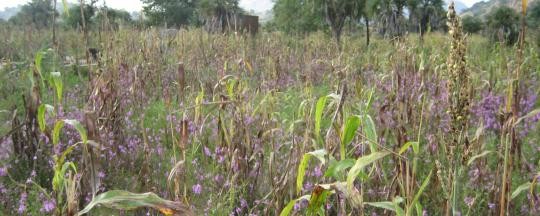Rains have come to Sudan’s South Kordofan State but a dry spell in June and July will likely have “a significant negative effect on crop-production for 2015-6,” according to a humanitarian update distributed by the monitoring group SKBN Coordination Unit yesterday.
The report cites inadequate rainfall in specific areas of Dallami, Umdorein, Heiban, Dilling, Lagawa counties and Kao-Nyaro in South Kordofan.
“Although rains have started in the area since the beginning of August, the dry spell of June and July will have long term effects on crop production. According to [the Food Security Monitoring Unit], 100% of payams surveyed cited drought as one of the top three factors affecting agriculture,” reads the update.
Seedlings planted, especially in areas of Dallami, Heiban, Umdorein, Dilling, Lagawa counties and Kao-Nyaro area, have reportedly dried out, twice or three times, delaying the usual harvesting of crops such as maize and other vegetables in August by one month.
However, in the area of Kauda, rain was on time to save the sorghum harvest, according to local people.
In Lagawa country, due to late rains people are still weeding – an unusual task this late in the season. According to local monitors, the delay of rainfall has created also conducive environment for insects and parasites to multiply.
The monitoring group reported also an increase in sorghum prices in central South Kordofan and the Western Jebel region, where July prices rose to 3x and 5x June prices, respectively. However, the price of sorghum decreased to 7 SDG per malwa (3 Kg) in the major market in Dalami county and to 10 SDG in Kauda after the onset of rains.
In other news, the monitoring group reported “the unexplained death due to sickness of around 2,000 animals in Umdorein county in July 2015,” saying this has raised the alarm of local communities and humanitarian actors. Blood samples have been sent abroad for testing.
Dry conditions are also reported in parts of Blue Nile State controlled by the SPLM-N.
File photo




